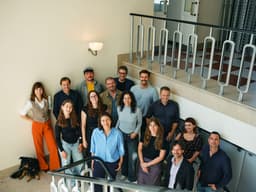
Visegrád 24: propaganda or aspiring news outlet with a concrete ideological line?
The project has amassed a large following covering the CEE region and reporting on Russia’s invasion from a pro-Ukrainian position, but it has faced criticism around posting fake news and ties to the Polish government
The Fix Newsletter
Everything you need to know about European media market every week in your inbox
30 articles • 0 Followers











